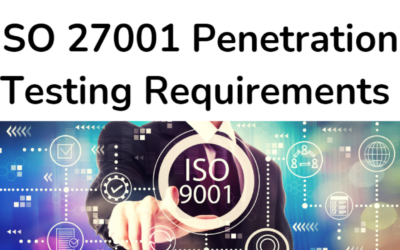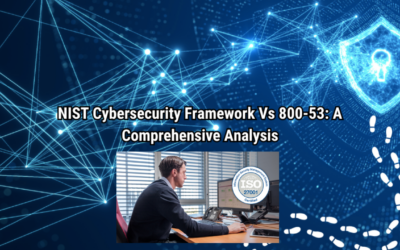As cyber threats, data breaches, and privacy concerns continue to rise, adopting a robust information security management system (ISMS) has never been more crucial. ISO 27001 Consultancy is a globally recognized standard for information security management, and ISO 27001 consultancy is the pathway for businesses to achieve certification and enhance their information security practices.
This article explores the importance of ISO 27001, the role of ISO 27001 consultancy, the benefits of certification, the steps involved in the consultancy process, and how organizations can successfully implement the standard to protect sensitive information and build trust with stakeholders.
What is ISO 27001?
ISO 27001 is part of the ISO/IEC 27000 family of standards, which provides a systematic approach to managing sensitive company information to keep it secure. The International Organization for Standardization (ISO) and the International Electrotechnical Commission (IEC) jointly developed the standard. ISO 27001 outlines the requirements for establishing, implementing, maintaining, and continually improving an Information Security Management System (ISMS). The purpose of an ISMS is to manage sensitive company information, such as financial records, intellectual property, employee data, and customer details, to ensure confidentiality, integrity, and availability.
ISO 27001 certification proves that an organization has taken the necessary steps to protect sensitive data from potential threats and vulnerabilities. It is a mark of trust, demonstrating to clients, regulators, and stakeholders that an organization takes its information security obligations seriously.
The Importance of ISO 27001 Certification
ISO 27001 certification is a strategic investment in the security and future of an organization. Here are several reasons why obtaining ISO 27001 certification is essential:
- Risk Mitigation: ISO 27001 helps businesses identify and assess risks related to the confidentiality, integrity, and availability of information. The standard ensures that appropriate controls are in place to reduce the likelihood and impact of security incidents, such as data breaches or system failures.
- Regulatory Compliance: In many industries, there are strict data protection and privacy regulations, such as GDPR, HIPAA, and PCI-DSS, that require organizations to take specific measures to protect data. ISO 27001 can help meet these regulatory requirements and avoid costly fines or reputational damage.
- Business Continuity: ISO 27001 provides a framework for ensuring that critical business operations continue even in the event of a security breach or disaster. The standard emphasizes the development of business continuity and disaster recovery plans, ensuring minimal downtime in the face of cyberattacks or system failures.
- Competitive Advantage: As the importance of data security grows, many clients and partners now require ISO 27001 certification as a precondition for doing business. By achieving certification, an organization demonstrates its commitment to data protection and stands out from competitors who may not prioritize information security.
- Customer Trust: Certification enhances customer confidence in your organization’s ability to secure sensitive data. It provides customers with assurances that their information is being handled with care and protected by industry-leading practices.
- Internal Efficiencies: The process of implementing ISO 27001 requires businesses to evaluate and improve their information security practices, which can lead to more efficient processes and better overall performance. By identifying weaknesses in security measures, organizations can streamline operations and reduce the potential for errors or breaches.
The Role of ISO 27001 Consultancy

ISO 27001 consultancy plays a critical role in helping businesses navigate the complexities of the certification process. The implementation of ISO 27001 requires expertise, and organizations may need guidance to ensure they are adhering to the standard’s requirements.
An ISO 27001 consultant is a subject matter expert who works with businesses to establish an ISMS that aligns with the best practices outlined in the standard. They bring in-depth knowledge and experience to help companies implement the necessary controls, create documentation, conduct risk assessments, and ensure compliance with ISO 27001. The consultant’s primary objective is to ensure that the organization successfully meets the requirements for certification.
Key Roles and Responsibilities of an ISO 27001 Consultant
- Gap Analysis: The first step in ISO 27001 consultancy is conducting a gap analysis to assess the organization’s current information security practices. The consultant compares the existing security controls and practices with ISO 27001 requirements to identify gaps and areas for improvement.
- Developing an Information Security Policy: The consultant helps develop a comprehensive information security policy that aligns with the organization’s goals and objectives. This policy serves as the foundation of the ISMS and provides a clear framework for securing sensitive information.
- Risk Assessment and Treatment: One of the central requirements of ISO 27001 is conducting a risk assessment to identify and evaluate potential security threats and vulnerabilities. The consultant helps the organization assess risks, determine the likelihood of incidents occurring, and decide on appropriate treatments (e.g., avoiding, reducing, transferring, or accepting the risks).
- Designing and Implementing Controls: ISO 27001 requires organizations to implement specific security controls to mitigate identified risks. The consultant works with the company to design, implement, and monitor these controls, which can include physical security measures, access controls, encryption, employee training, and more.
- Documentation and Records Management: ISO 27001 places a heavy emphasis on documentation and record-keeping. Consultants assist in creating the necessary documentation, such as risk assessments, policies, procedures, and incident management records, to meet the standard’s requirements.
- Training and Awareness: Consultants play a key role in training employees on the importance of information security and the organization’s specific policies and procedures. Ensuring that all employees are aware of their responsibilities is critical to maintaining a secure environment.
- Internal Audit and Review: Before seeking certification, organizations are required to conduct internal audits to ensure compliance with ISO 27001. ISO 27001 consultants may assist in performing internal audits, identifying non-conformities, and recommending corrective actions to resolve any issues.
- Certification Support: Once the organization is ready for certification, the consultant can provide support during the external audit process. They help ensure that all necessary documentation is in place and that the organization’s ISMS is fully aligned with ISO 27001 standards.
The Process of ISO 27001 Consultancy
ISO 27001 consultancy typically follows a structured approach, which may vary slightly depending on the specific needs of the organization. However, the typical steps in the process are as follows:
Step 1: Initial Assessment and Gap Analysis
The consultancy begins with a thorough assessment of the organization’s current information security practices. This gap analysis helps the consultant understand the company’s existing policies and procedures and identify areas that need to be improved to align with ISO 27001.
Step 2: Risk Assessment and Treatment
The consultant works with the organization to identify and assess risks related to the security of its information. The next step is to develop a risk treatment plan to mitigate identified risks. This may involve implementing new security controls or adjusting existing ones to reduce vulnerabilities.
Step 3: Developing Policies and Procedures
To ensure compliance with ISO 27001, the organization needs to establish clear information security policies and procedures. The consultant helps create these documents, ensuring they meet the standard’s requirements and reflect best practices in information security.
Step 4: Implementing Security Controls
The consultant supports the implementation of various security controls across the organization. This may involve setting up technical solutions (e.g., firewalls, encryption), defining access control procedures, conducting staff training, and establishing monitoring systems.
Step 5: Conducting Internal Audits
Internal audits are an essential part of the ISO 27001 implementation process. The consultant helps conduct internal audits to assess the effectiveness of the ISMS and ensure that any non-conformities are addressed before the formal certification audit.
Step 6: Certification Audit

Once the organization’s ISMS is fully implemented and internal audits have been conducted, the consultant helps prepare the organization for the certification audit. The certification body will assess the ISMS, and if everything is in order, the company will be awarded ISO 27001 certification.
Benefits of ISO 27001 Consultancy
- Expert Guidance: ISO 27001 consultants bring valuable expertise to the table, ensuring that organizations avoid common pitfalls during the implementation process and achieve certification more efficiently.
- Cost-Effective: By leveraging the knowledge and experience of a consultant, businesses can save time and resources that would otherwise be spent on trial and error or extensive in-house training.
- Faster Certification: Consultants help businesses streamline the implementation process, meaning companies can achieve ISO 27001 certification faster and begin reaping the benefits sooner.
- Ongoing Support: Many ISO 27001 consultants offer ongoing support even after certification, helping organizations maintain their ISMS, conduct periodic reviews, and ensure continued compliance with evolving security threats and regulatory changes.
Conclusion
ISO 27001 consultancy is vital for organizations seeking to implement an Information Security Management System that meets international standards. With the increasing frequency and severity of cyber threats, organizations that adopt ISO 27001 position themselves as trustworthy stewards of sensitive data, enhance their risk management processes, and comply with regulatory obligations. By partnering with an experienced ISO 27001 consultant, businesses can confidently navigate the certification process, improve their information security practices, and strengthen their reputation in the marketplace.



0 Comments